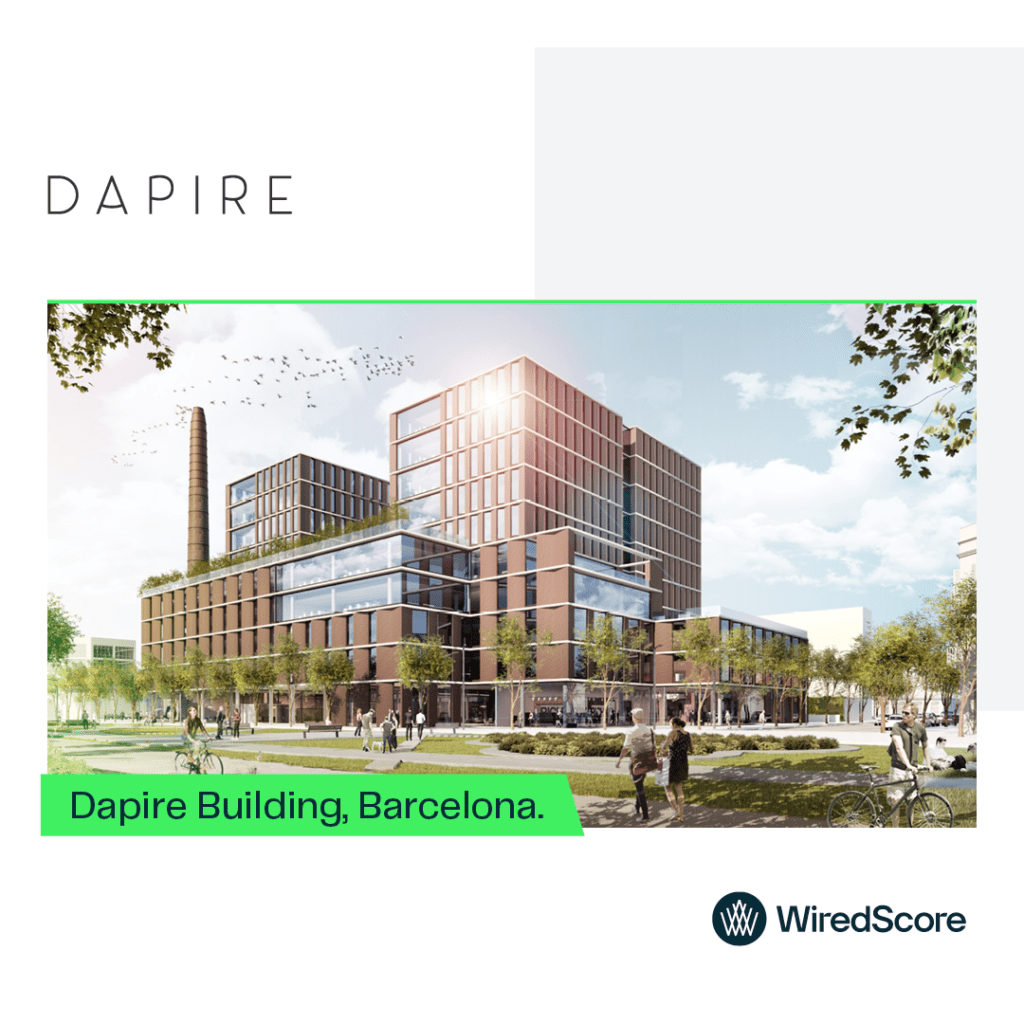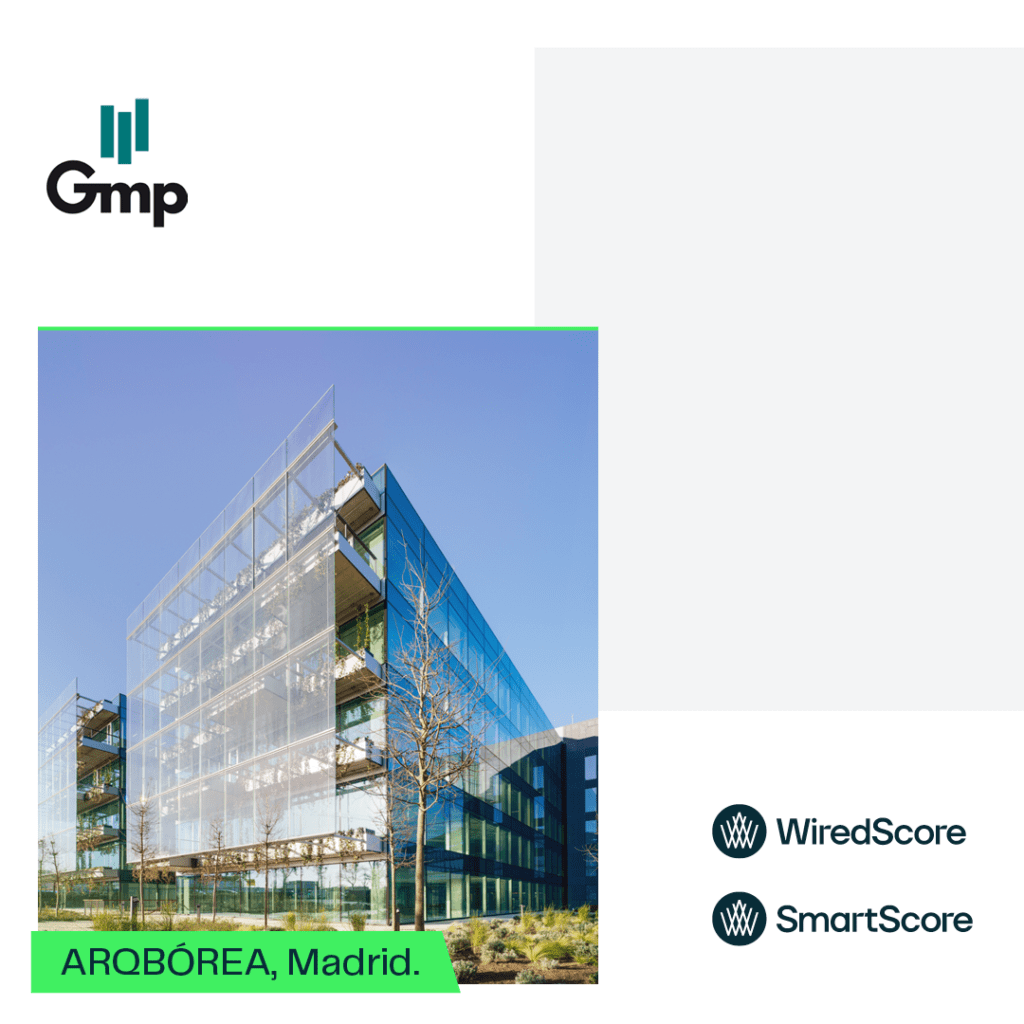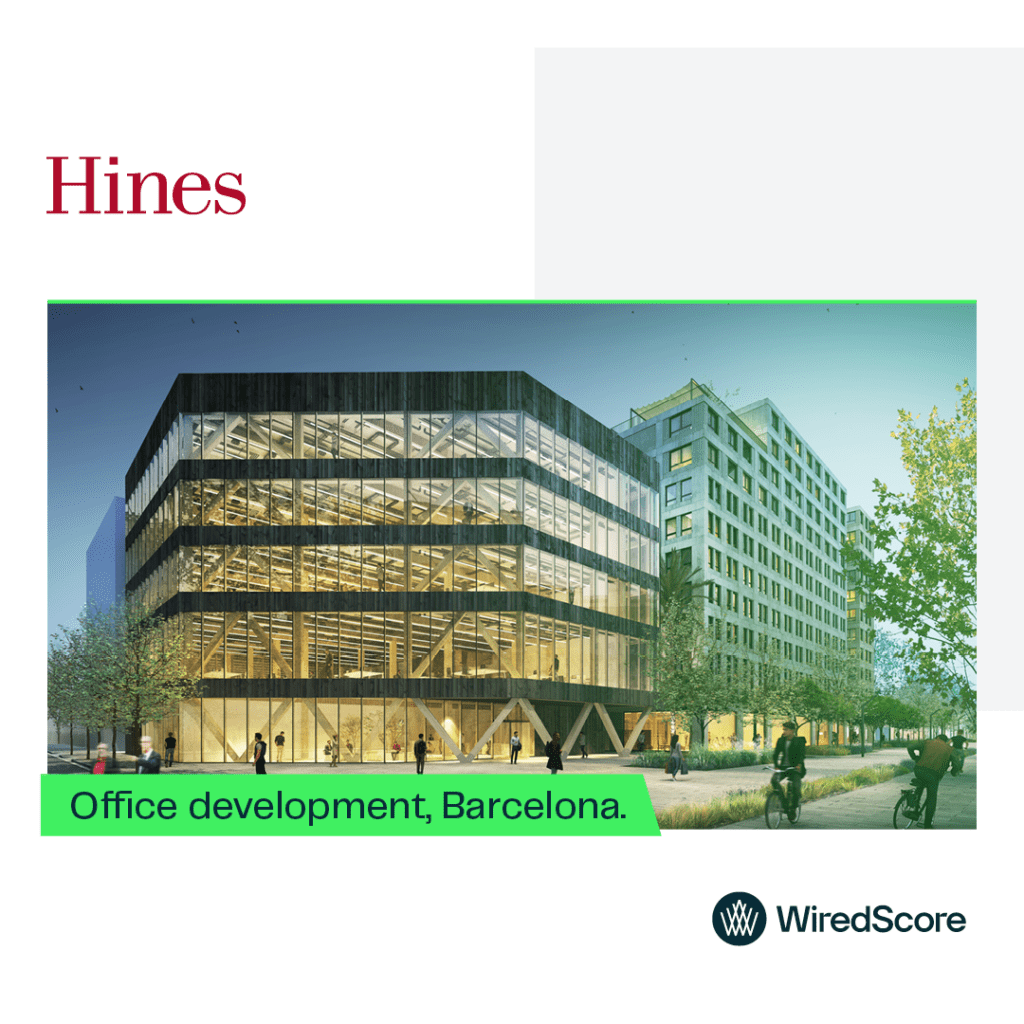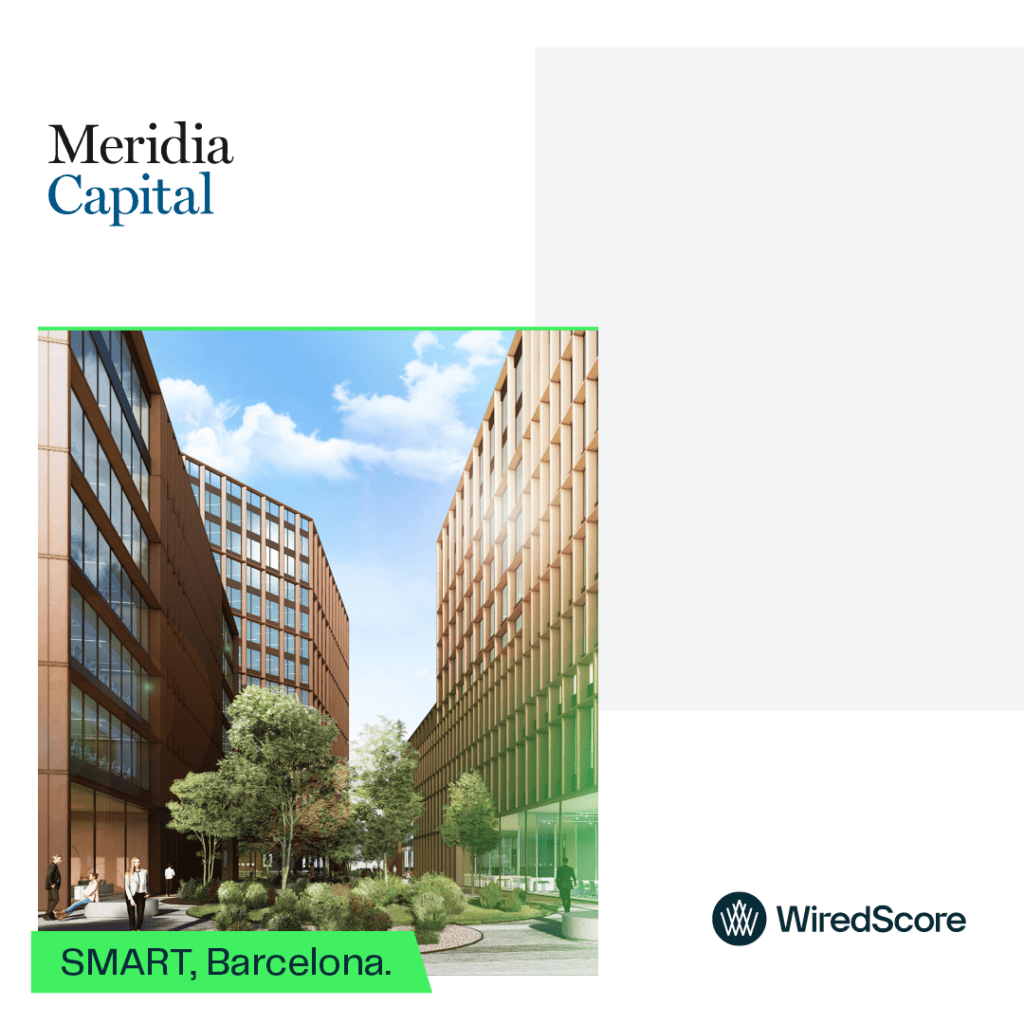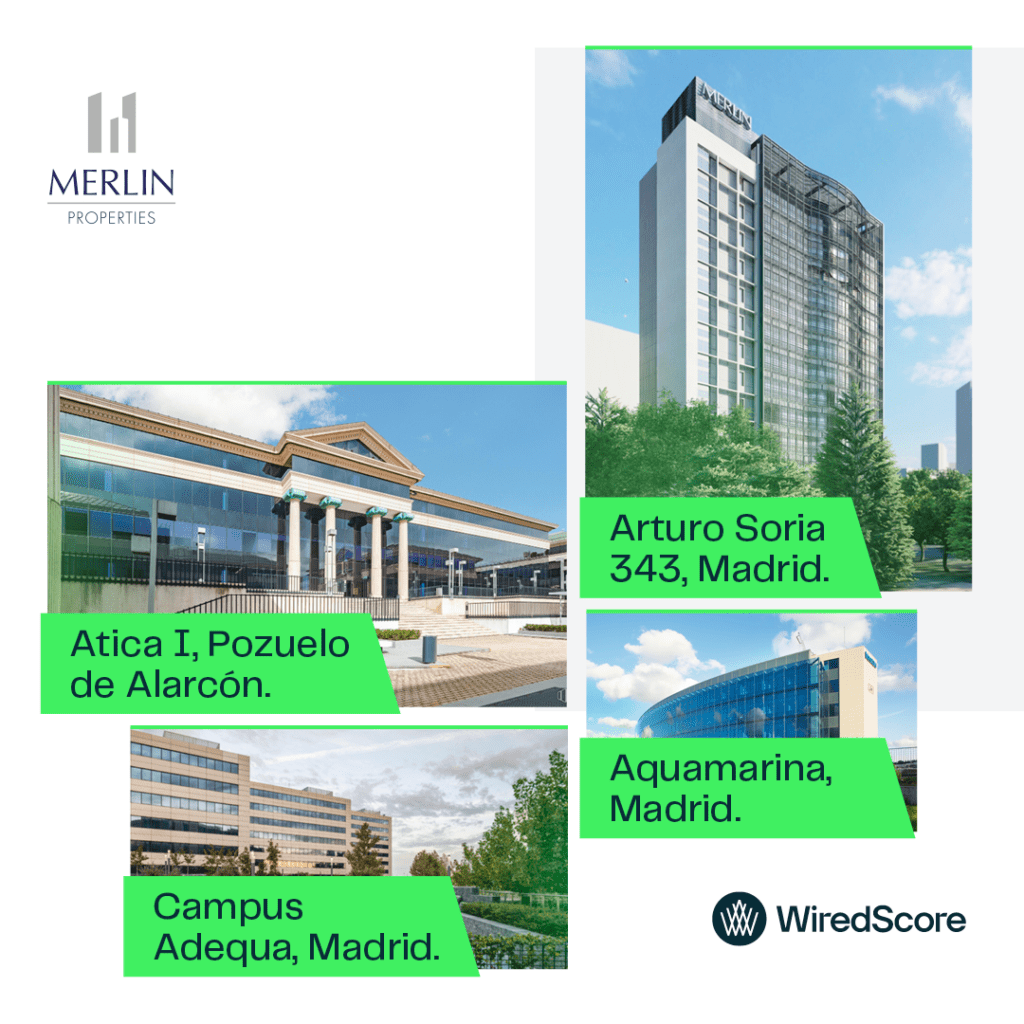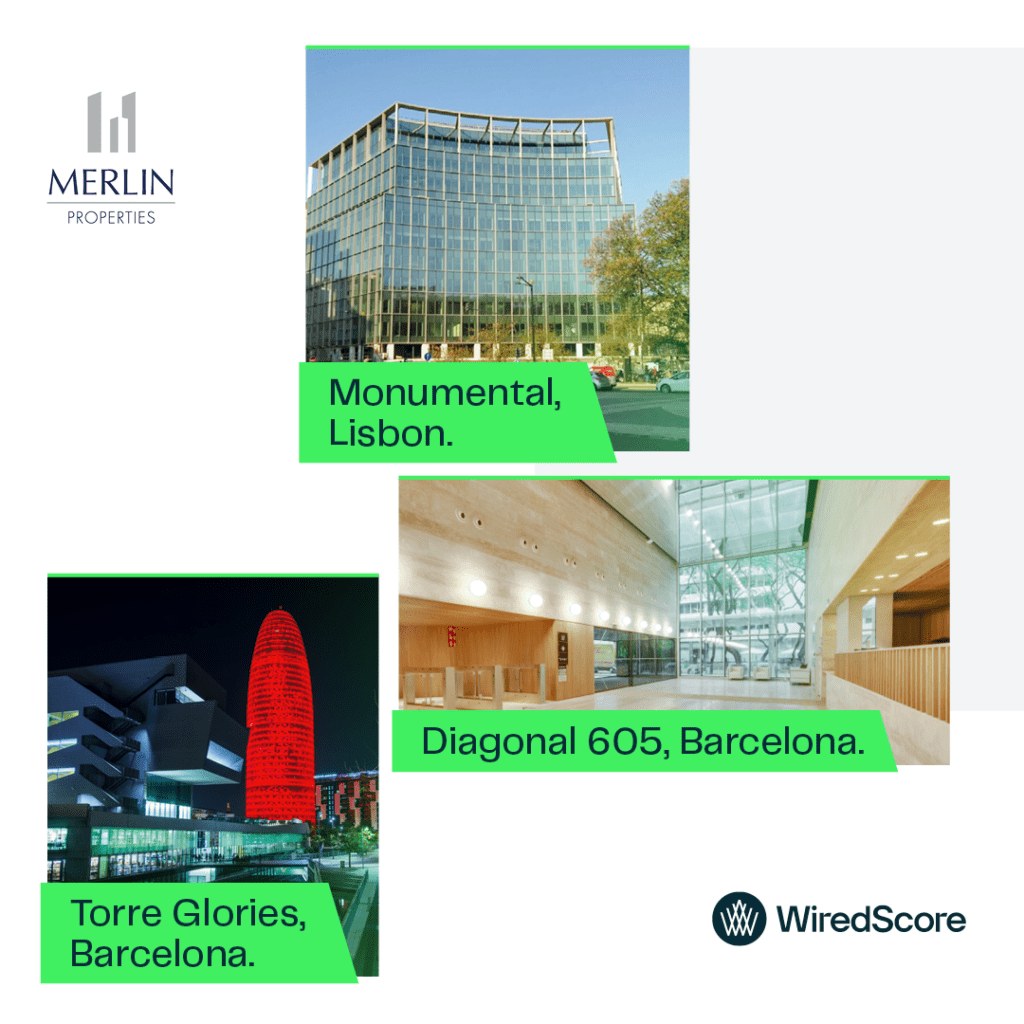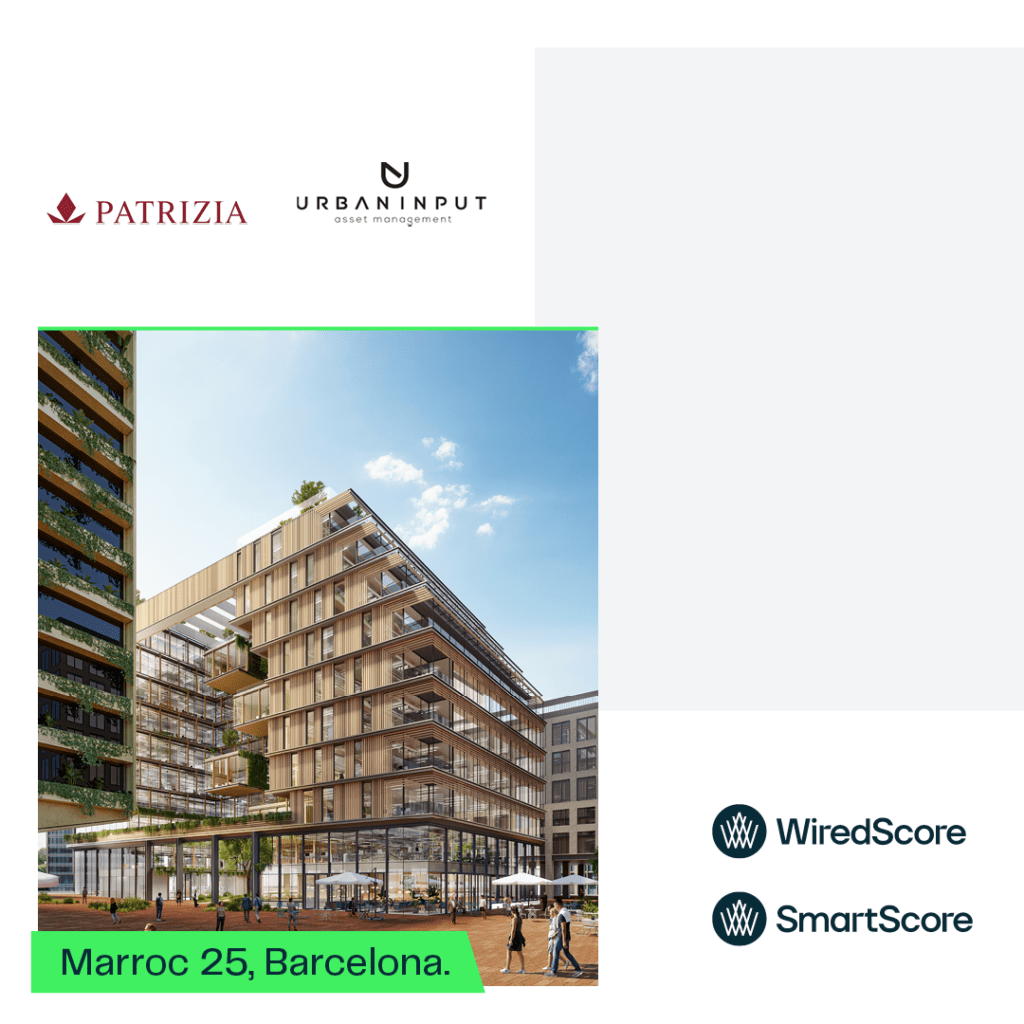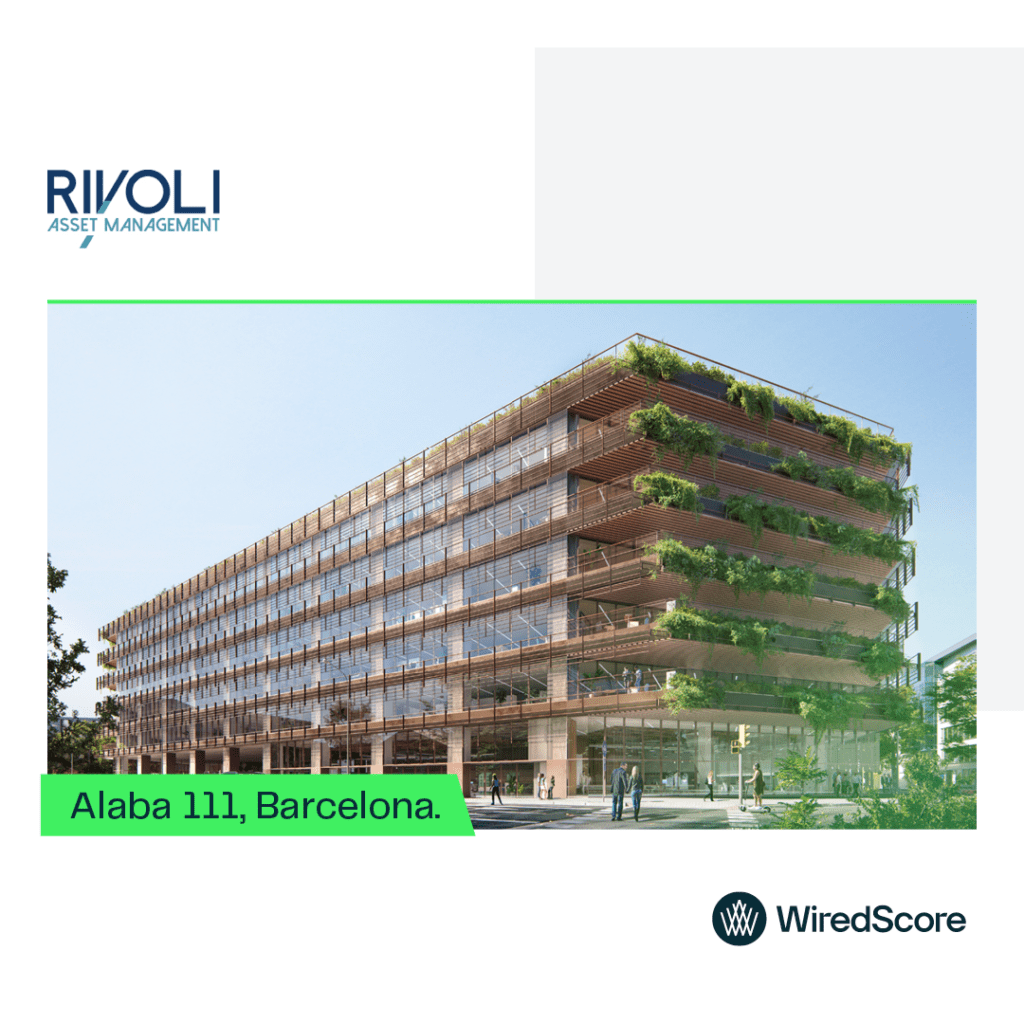WiredScore launches in Spain and Portugal
Posted:
5 / 27 / 2021
Tagged:
On Tuesday 25th May, WiredScore launched in Spain and Portugal. This step forms an important part of WiredScore’s mission: to make the world’s buildings smarter and better connected, enabling a more collaborative, innovative and dynamic future.
This move also marks a very important first for us, as we launched in the region with 34 buildings signed up from 13 landlords committed to WiredScore and/or SmartScore certification – the first time that WiredScore has launched into a new market with not one, but two, certifications. We’d like to offer a big thank you to our launch clients:
- Allianz Real Estate
- Bonavista Developments
- BWRE
- Dapire
- Europa Capital
- Gmp
- Hines
- Meridia Capital
- Merlin Properties
- Mitsubishi Estate
- Partners Group
- Patrizia AG
- PineBridge Investments
- Rivoli Asset Management
- Savills Aguirre Newman
- Urban Input
We’re delighted that all of our launch clients have pledged a commitment to providing their tenants with best-in-class digital connectivity and smart capabilities.
Pre-launch research
Ahead of the launch, to gauge the importance of digital connectivity in Spain and Portugal, WiredScore partnered with Opinium to conduct an insightful piece of research.
We discovered that, in Spain, when considering a good working environment, 74% of office workers believe internet connectivity to be the most important factor (rating it more important than air quality, office equipment and lighting).
We also found that in Portugal 46% of office workers have had to turn their office internet connection on and off again to improve the connection, and 68% mention that better connectivity will be a major factor in their decision as to whether or not they return to the office post-pandemic.
Further insights from the research revealed that 87% of Portuguese office workers depend upon a reliable digital connection to be productive. Whilst in Spain, digital connectivity is now considered more important than location when selecting a new office.
87%
of Portuguese office workers depend upon a reliable digital connection to be productive
74%
of office workers believe internet connectivity to be the most important factor when considering a good working environment
The panel discussion
The launch event itself played host to a presentation on trends in technology by WiredScore’s Director of Expansion Eden Dwek, and a lively panel discussion, expertly hosted and moderated by Jorge Valero, ElEconomista.
Dwek’s tech trends presentation took a deep dive into how technology impacts the way we live, work and socialize, highlighting the ever-increasing nature of our digital demands and what this means for real estate. The presentation took us back through digital time, analyzing the origins of office technology, and provided some predictions regarding the future of the technological landscape.
After the presentation, the lively discussion saw the panelists (Jose Mittelbrum, CBRE; Lynn Smith, Europa Capital; David Brush, Merlin Properties; Grigor Hadjiev, Allianz; Will Buttery, WiredScore) cover a broad range of topics.
Prominent topics from the discussion included the evolution of tenant’s needs (driven by heightened levels of technology in our personal and professional lives); the climate crisis and green agenda; the movement towards a hybrid mode of working, and the greater adoption of cloud computing necessitating that 5G be distributed throughout real estate.
In light of a post-pandemic tendency for companies to lean toward what’s been termed the ‘hybrid mode of working’, it’s now of utmost importance that our workplaces are able to accommodate a shift in working habits. As Jose Mittelbrum, CBRE, aptly pointed out: “For the hybrid model to work, you need technology. Every sector is being digitised. Preparing your offices for that digital talent is key and offices are a really important asset for companies: flexibility, sustainability and digitalisation are the three core pillars on everyone’s agenda.”
The subject of sustainability also sparked some lively opinions from the panel. If we’re to achieve a green agenda on a global scale, industries across the world must work together towards a common goal of carbon reduction and, ultimately, net zero. This sentiment was strongly echoed by Lynn Smith, Europa Capital, as she highlighted that, from the perspective of impact investment: “sustainable buildings are more attractive to investors looking to add impact investment to their portfolio. We, in the real estate industry, have a duty of care to make sure our buildings are as green and sustainable as they can be so our occupiers can meet the targets they set.”
Top of mind for many occupiers is the idea of company culture. As the world emerges from a global pandemic, thoughts are turning to the ways in which employees will remain committed to a company, when we have been so far removed from the culture for so long. David Brush, Merlin Properties, brought these ideas into play during the discussion, suggesting that real estate has a critical part to play in reconnecting the global workforce.
Brush also cited data as instrumental in any successful, user-centric strategy: “Building culture and training staff under a fully remote model is challenging. If landlords respond to what tenants are asking, rethink space and offer as many alternatives as possible, then that will keep the office relevant. The connectivity aspect and smart building features will be the arrow in the quiver when it comes to competing with other buildings. Data is at the heart of all of these decisions. Without good data, you can’t make the right decisions.”
Data was another big hitter throughout the discussion. Grigor Hadjiev, Allianz, also had some firm opinions on the power of data, and the necessity for real estate to harness its full potential: “[within real estate] there’s one big game changer: data. Data is the way we can get closer to the tenants and understand what they want. Allowing us to accommodate new demands and master the building differently, to know it better, and understand how the building works better to better-understand in-building tenant behaviour, to then predict what it is the tenant wants and needs.”
The resounding notion from the discussion was neatly rounded off by Will Buttery, WiredScore, as he combined all panelists’ viewpoints into one succinct line: “digital connectivity is business critical – you can’t work without it.” Buttery later went on to point out that “With the world slowly returning to the office, landlords now have the opportunity to create future-proof spaces” highlighting the necessity for smart building technology throughout real estate as we migrate back to the office (be that in a hybrid or full-time capacity).
Overall, the point upon which all panelists were in agreement was that data-driven decisions enable developers to support a hybrid mode of working with efficiency, allowing tenants to attract top talent and deliver heightened levels of building sustainability.
Buildings able to prove themselves as digitally versatile will have the greatest chance of attracting and retaining tenants in the future. If the future of real estate depends on anything, it’s the built environment’s ability to predict, and adapt to, an ever-increasing demand for better, smarter spaces that are cost efficient, deliver an inspirational experience, are more sustainable and provide exceptional levels of connectivity.


